Product Review - #InvisibleBag.
The Eco-Friendly Packaging Alternative Aiming To Eliminate Plastic Waste
We discuss the pros and cons of this water-soluble, compostable, and biodegradable packaging option for F&B and hospitality businesses.
26 October 2023
Share this exclusive content from Saladplate
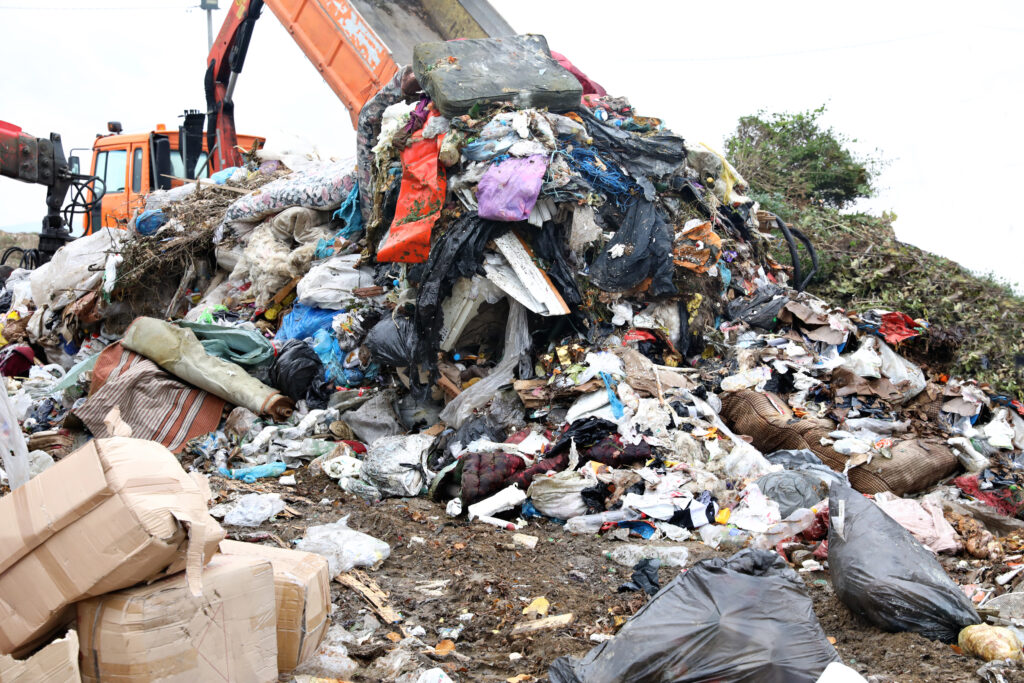
Photo Credit: Envato Elements / by Dvatri
While packaging has formerly been an afterthought for Food and Beverage businesses, rapidly deteriorating environmental conditions and shifting consumer demands have forced brands to reexamine their packaging and plastic usage. This is imperative for brands in the F&B or hospitality sectors, that rely heavily on takeaway plastic bags. Over one million plastic bags end up in the trash every minute, and up to one trillion plastic bags are used worldwide yearly.
A disposable bag that dissolves in water
Hong Kong-based startup Distinctive Action has launched a unique and timely solution: the #InvisibleBag. Made of Polyvinyl Alcohol (PVA) and plant-based starch, glycerin, and water, this water-soluble, compostable, and biodegradable bag is a remarkable alternative to traditional plastic bags — but it looks just like one.
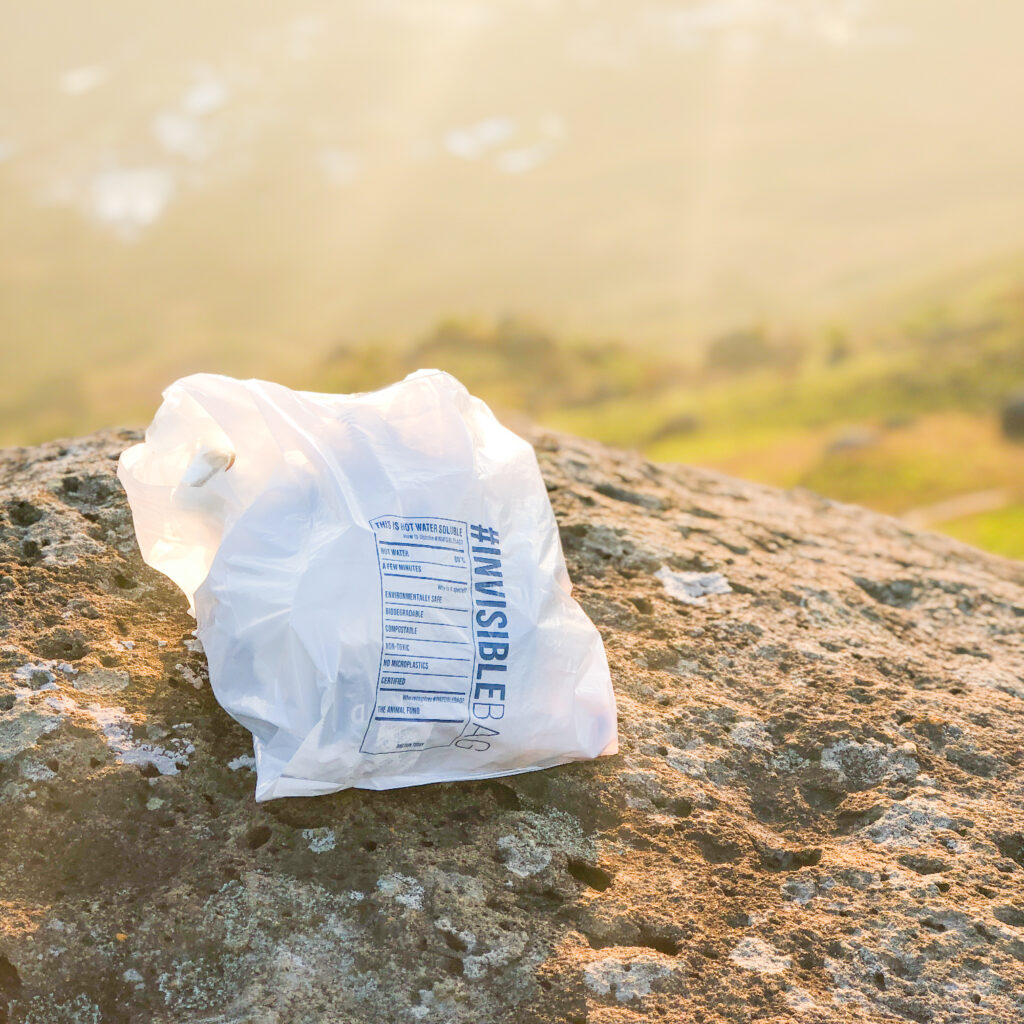
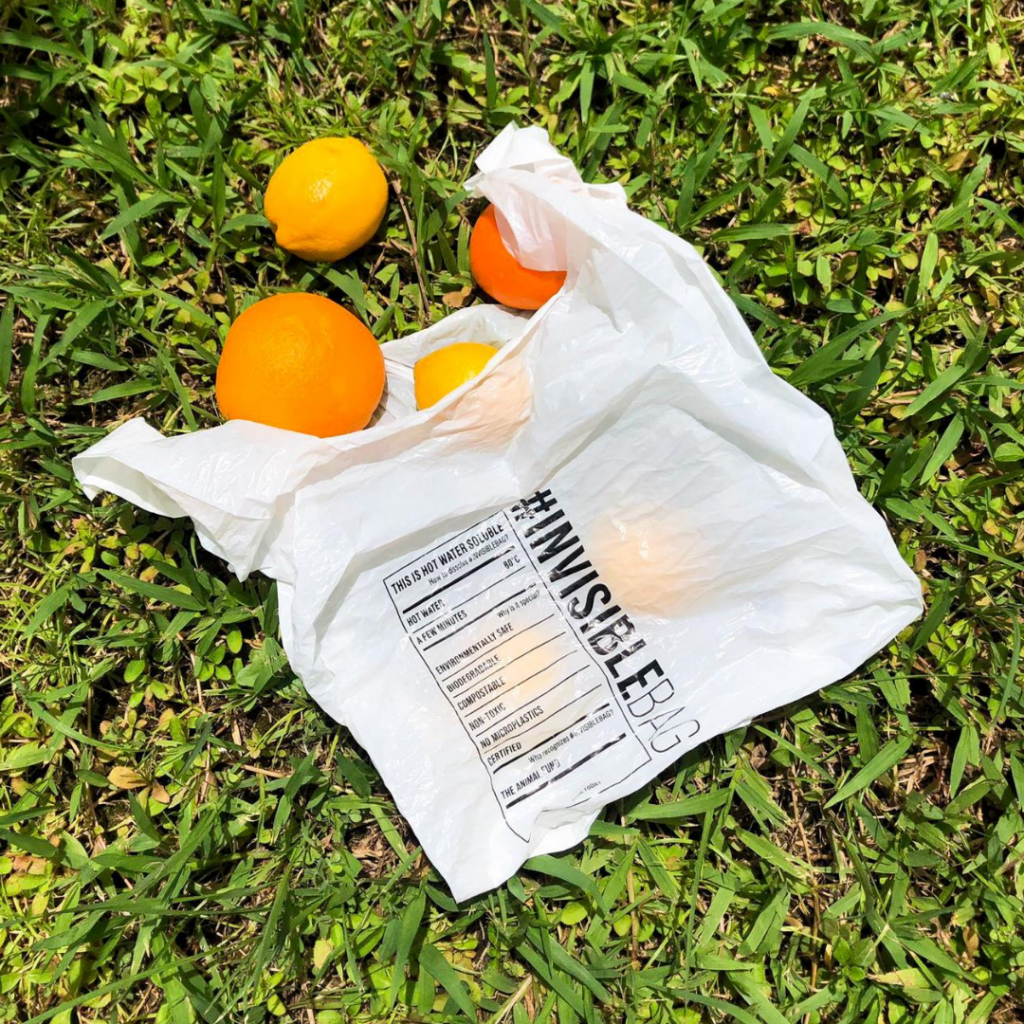
Photo Credit: Invisible Company
Photo Credit: Invisible Company
Founders Devana Ng and Flavien Chaussegros first conceptualised #InvisibleBag in 2018 while picking up trash on a scenic trail in Hong Kong. They realised that beyond simply recycling plastic, businesses needed to eliminate plastic usage at the source.
In 2020, Invisible Company was launched with its hero product #InvisibleBag.
How it works?
#InvisibleBag is a completely eco-safe packing option made of PVA, a non-toxic, odourless, skin-safe synthetic polymer. The bag completely dissolves in water at temperatures higher than 80 degrees Celsius, and the resulting dissolved material has been certified safe by biotech lab testing company Vitargent.
Even if it is not dissolved, the bag is still completely compostable and biodegradable.
Success in Hong Kong, and beyond
Since its inception, the invisible bag has had massive success, replacing over 600,000 plastic bags and working with 800 brands worldwide. Thus far, Invisible Company has enjoyed its greatest success in its HQ in Hong Kong, as well as in Taiwan and the United States. The organisation also runs brand collaborations in the UK, Brazil, and Colombia, among other countries.
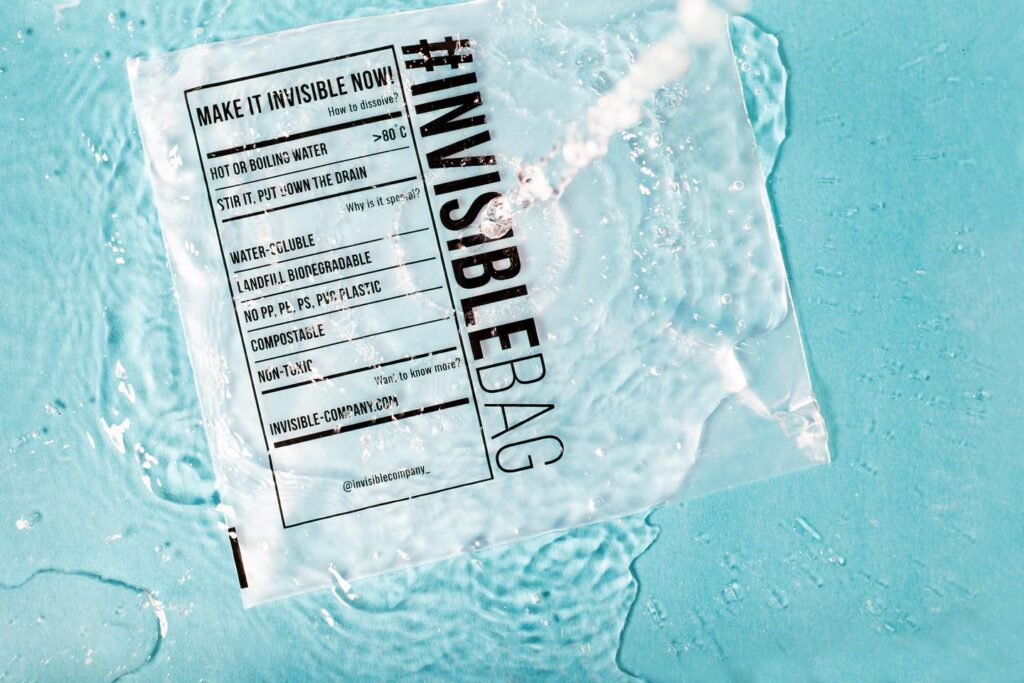
Photo Credit: Invisible Company
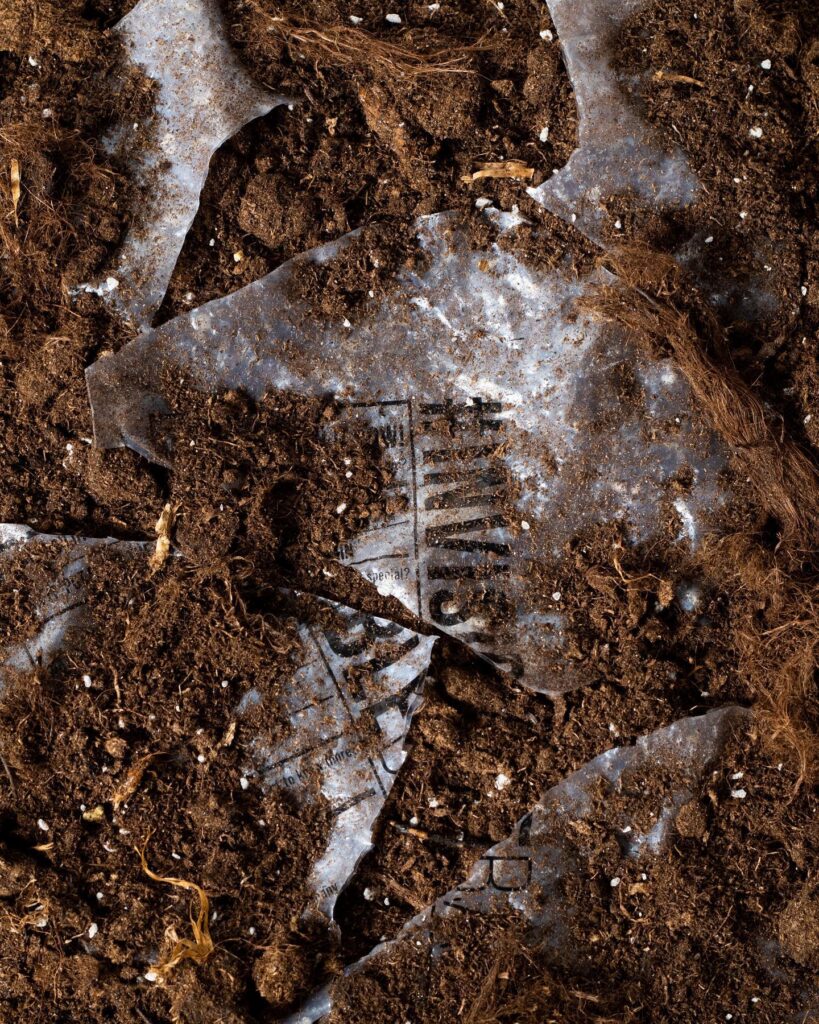
Each #InvisibleBag shopping bag is around HKD 1.73 or SGD 0.3 per unit and can be ordered in standard quantities of 200, 500, or 1000 pax. In comparison while traditional plastic is still the cheaper option, the cost of using a plastic bag is rising and in Singapore alone, major supermarkets are required to charge customers at least SGD 0.05.
A higher price point, and other cons
Nevertheless, the price differential between disposable plastic bags and the #InvisibleBag might seem daunting – especially to small business owners that run family-owned eats or roadside shops. Switching to the Invisible Bag might only prove worthwhile for larger grocery stores and artisanal brands as the plastic bag tax continues to rise and consumers demand more eco-friendly options from food vendors.
But there is a caveat – the shopping bag is only ideal for carrying most dry goods. Unfortunately, the Invisible Bag is not an option for ice cream stores, cold bakeries, or any other stores selling food with condensation.
However, this isn’t the end of the road for the company – Invisible Bag is expected to be able to accommodate wet foods in the future. “We’re currently working on a hydrophobic, oleophobic food packaging coating to be compostable, biodegradable, recyclable, and plastic-free, and doesn’t contain any PFAS. It would act as a substitute to the current plastic coating, which contains PFAS and fluorine,” Devana Ng shared in an exclusive interview with Saladplate.
Thus, the #InvisibleBag offers a distinctive and innovative solution to plastic waste that inspires action to protect the environment. It is a great eco-friendly option for larger F&B businesses looking to reduce their carbon footprint. Nevertheless, the brand still has a way to go before becoming a staple in the F&B industry, particularly in improving its utility and reducing its price point. The Invisible Bag can be ordered here, and the company also offers a 10-piece trial pack here. The Invisible Bag ships free of charge to the US, UK, Hong Kong, Singapore, and more.
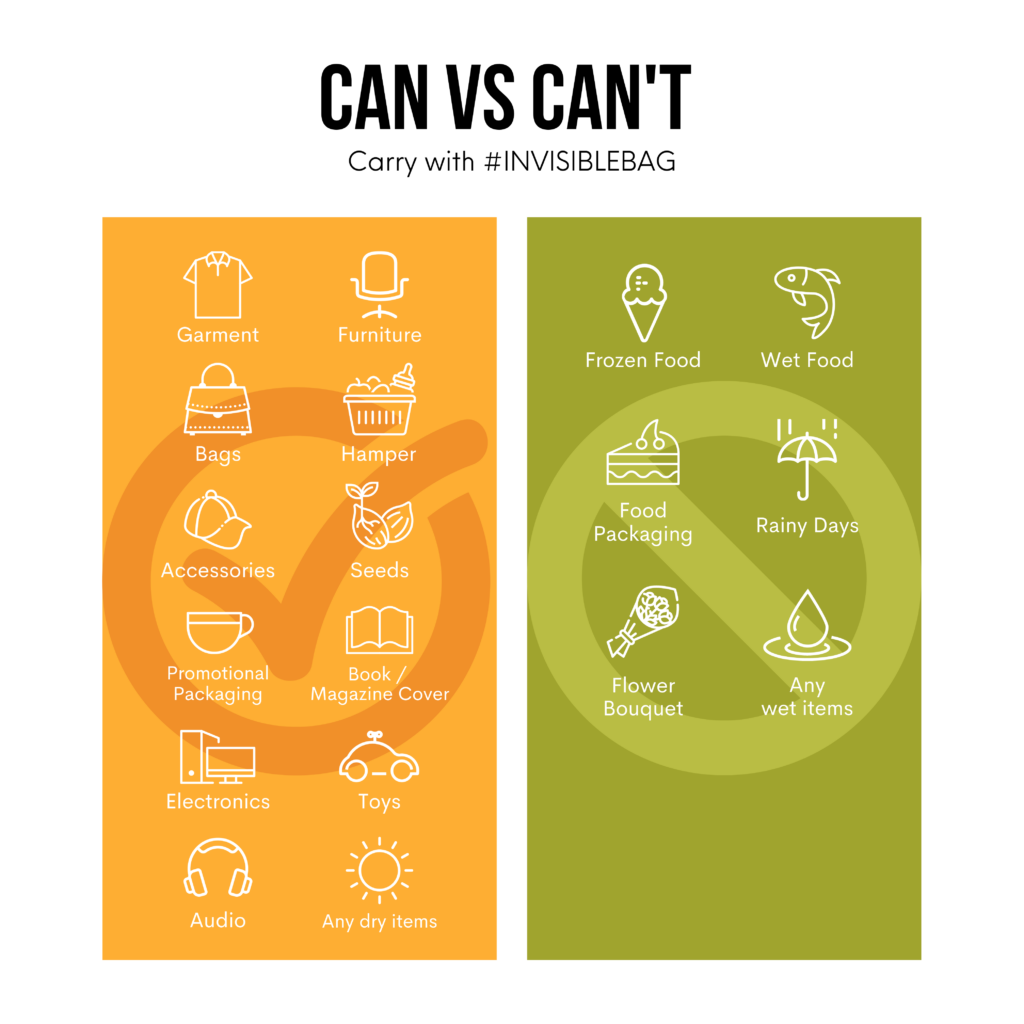
Photo Credit: Invisible Company
Author: Minoli Almeida
Minoli is a seasoned content strategist, marketer, and Founder of the content and copywriting agency, The Mini Project. Leaving her job as marketing lead at a digital media-tech publisher in early 2020, Minoli founded her content marketing consultancy to create content that drives business results and delves into a brand’s DNA. Minoli helps experts and brands define their purpose, refine their voice, and connect with their audience through expertly crafted content.



